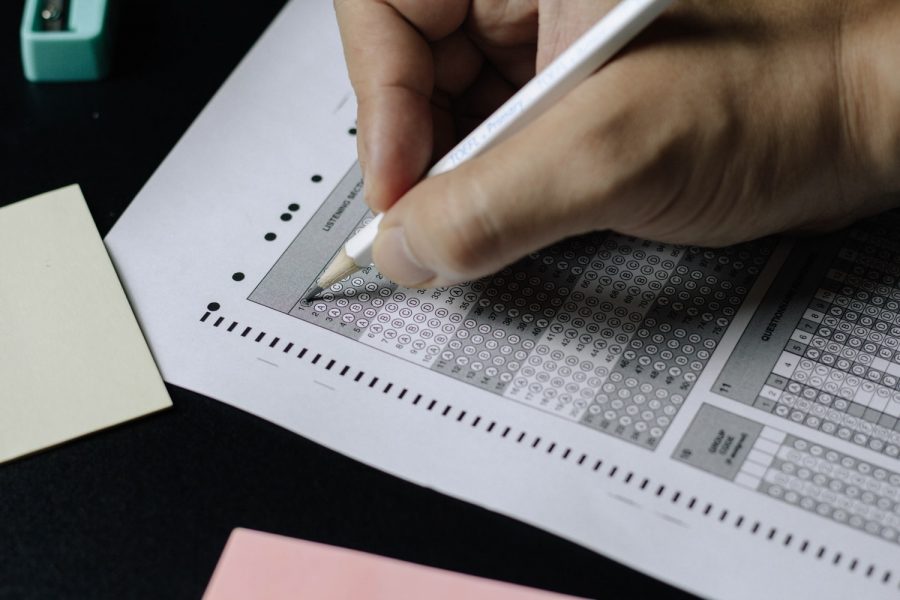OPINION: Students learning in person are at a disadvantage when taking assessments
Throughout the 2020-2021 school year, West Essex students have had the option to take classes fully virtual or in a hybrid environment. These two different learning styles have raised many questions as to how all students are receiving the same level of fairness on assessments. In person students feel at a disadvantage because they do not have the same resources as the students at home during tests. Students taking tests virtually have the advantage to use the internet and their phones during tests, making cheating inevitable.
“Many students stay home simply to cheat on tests, and this is extremely unfair to students who are in person,” in person student and junior Jonathan Ding stated. “The current system is allowing those who do not come to school to remain home and do minimal work while cheating on tests, rewarding them for a lack of effort.“
Students also believe there are ways to make the tests more fair. Using lock-down browsers, making tests open-note or only administering tests on virtual Wednesdays are all ways to make all assessments fair.
Math teacher Melissa Ayers changed all her assessments to open note for both virtual and in person students, to give all students an equal opportunity to succeed.
“Providing students with the opportunity to use their notes levels the playing field on traditional assessments,” Ayers states in an email. “Alternative assessments are another option.”
Junior Aj Michelotti, who was virtual for Marking Period 3, also understood the problems with test taking. He did not feel that students learning in person should be getting lower grades than the students at home because of cheating.
“If a lockdown browser is used and go guardian as well, with cameras on, showing one’s whole body, it puts the students in school at a fair and equal testing experience as the students at home,” Michelotti stated.
Students who go into school are trying to feel a sort of normalcy in their lives but do not want their grades suffering compared to the students who learn from their beds. In addition, it has been evident that students are absent on testing days, making the students in person feel even more at a disadvantage. Students at home also might not feel it is important for them to study, because they can just cheat. This teaches bad study habits and will only negatively affect them later in life, in college and out in the “real world.”
“It reinforces the idea of working solely for grades; students are focusing more on using COVID circumstances to boost their GPA instead of actually learning new material,” Ding states. “Students who stay home learn less, yet achieve better grades, which renders schooling entirely useless.”
There are ways to fix the problems with testing, but not all teachers have changed their methods. There must be more regulation on testing to allow for all students to have the same chance for a better grade. No student should feel at a disadvantage when taking tests in school.








![[VIDEO] School Spotlight for Spring 2025](https://thewessexwire.com/wp-content/uploads/2020/03/westessex-475x356.jpg)
![[VIDEO] Varsity Media Day: Winter 2025](https://thewessexwire.com/wp-content/uploads/2025/02/vmd-25winter-600x450.jpg)

